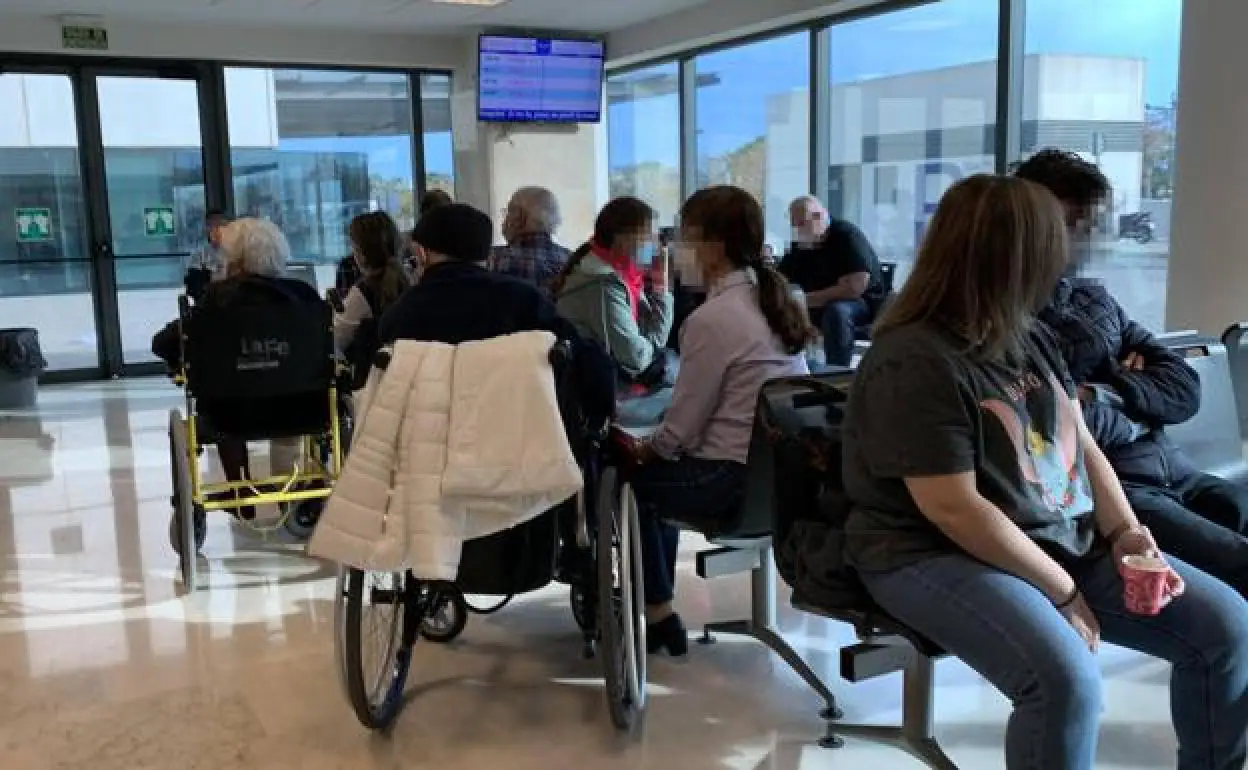Respiratory infections rise to Covid-19 levels in Spain
Cases of influenza and respiratory syncytial virus (RSV) are at 773 per 100,000 inhabitants
ÁLVARO SOTO
Monday, 28 November 2022, 19:45
The incidence of all respiratory viruses continues to grow in Spain, reaching 773 cases per 100,000 inhabitants, according to the latest report from the ministry of health's surveillance system, which collected data from primary care centres from 14 to 20 November. In the last two weeks, the index has grown 318 points and in the last seven days, 82.
Until this week, Covid-19 was the most widespread serious respiratory disease, but both influenza (flu) and respiratory syncytial virus (RSV), which is generally mild but can cause bronchiolitis, are soaring and reaching rates even higher than SARS-CoV-2.
Spain is already in a 'tripledemia', as scientists have described this exponential growth of the three diseases.
The incidence of flu is at 116.9 cases per 100,000 inhabitants (above 50 is considered an epidemic) and that of RSV at 107.5, almost at the same level as that of Covid-19, which is at 113.8. Worryingly, data from the national epidemiological surveillance network and the Carlos III Institute show that while Covid-19 is stabilising, influenza and RSV have more than doubled since the first week of November. At that time, the incidence of influenza was 44.7 cases and that of RSV was 45.1.
The growth in infections is having a significant impact on the situation in hospitals. According to the ministry of health, 21.8 respiratory patients per 100,000 inhabitants have to be admitted. In addition, children's emergency departments have collapsed in recent weeks, with up to 40 per cent more cases of respiratory illnesses than before the pandemic. The highest rates of influenza are in the under-four age group (241.1 cases per 100,000 inhabitants). And cases of RSV in this age group is 1,226.5 cases per 100,000 inhabitants.
"There is an explosion of infections that directly affects primary care centres and hospitals," said epidemiologist and paediatrician Quique Bassat. According to the mathematical models that his team manages, Bassat estimates that the peak of RSV infections will occur this week. "And I am confident that this will be the case and that the maximum number of flu cases will arrive from January onwards, because if not, we may find that at Christmas, which is a time of close contact, there will be flu, Covid and RSV," he said.
In view of the RSV increase that has occurred in at least 13 countries, the European Centre for Disease Prevention and Control has requested that people with symptoms "self-isolate at home during the 48 hours following the onset of symptoms" and that children suffering from the disease should not attend schools or day-care centres.
In addition, the health agency points out that prevention measures against RSV are similar to those for other respiratory viruses (covering the nose and mouth when sneezing, avoiding close contact and washing hands regularly and using a hand sanitiser).
The use of masks and vaccination should be added to these recommendations, said Lorenzo Armenteros, spokesperson for the Spanish Society of General and Family Medicine (SEMG).
"What all the indexes pointed out was that this year there was going to be a lot of flu, especially influenza A, and that it was going to affect children," said Armenteros.
